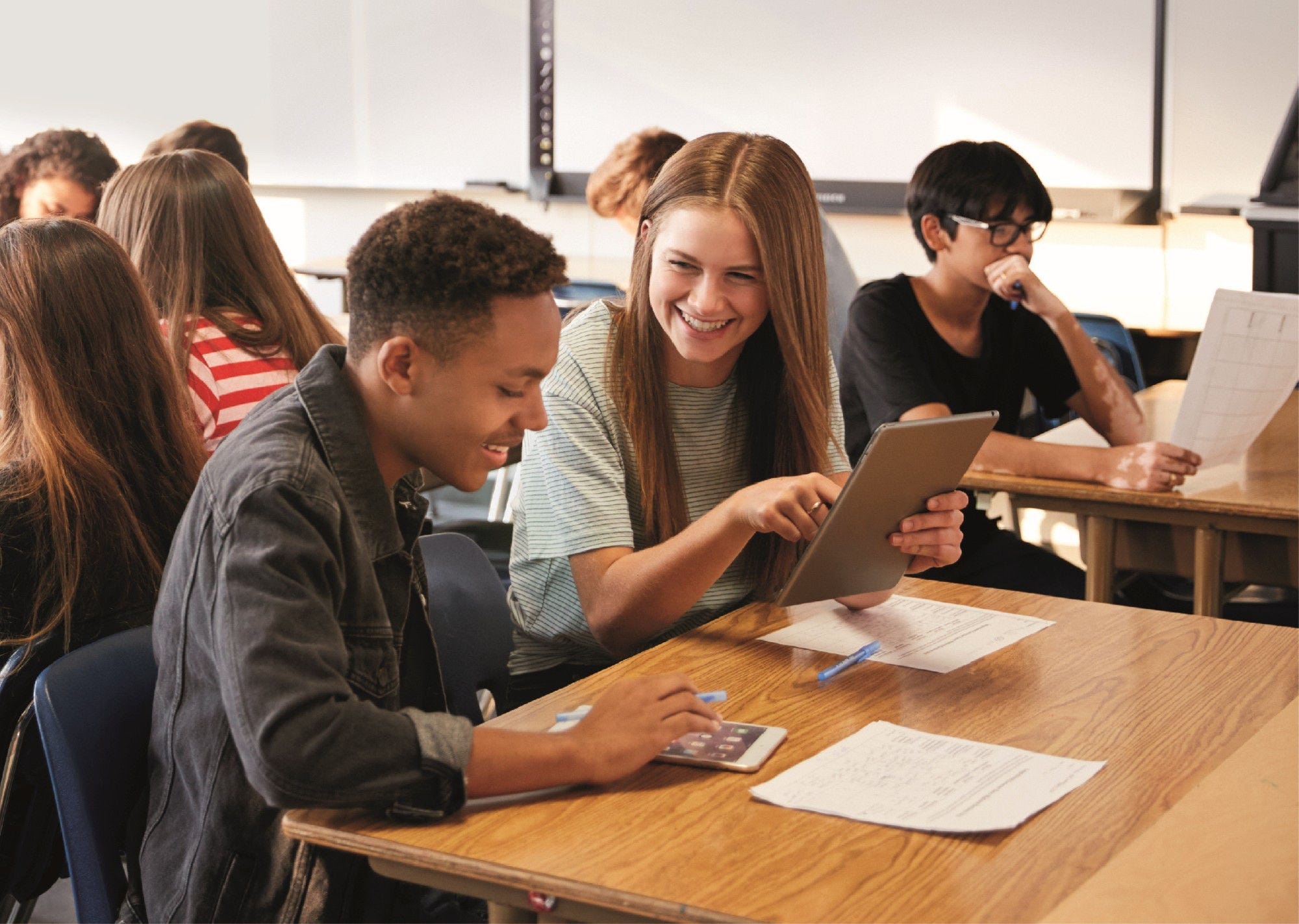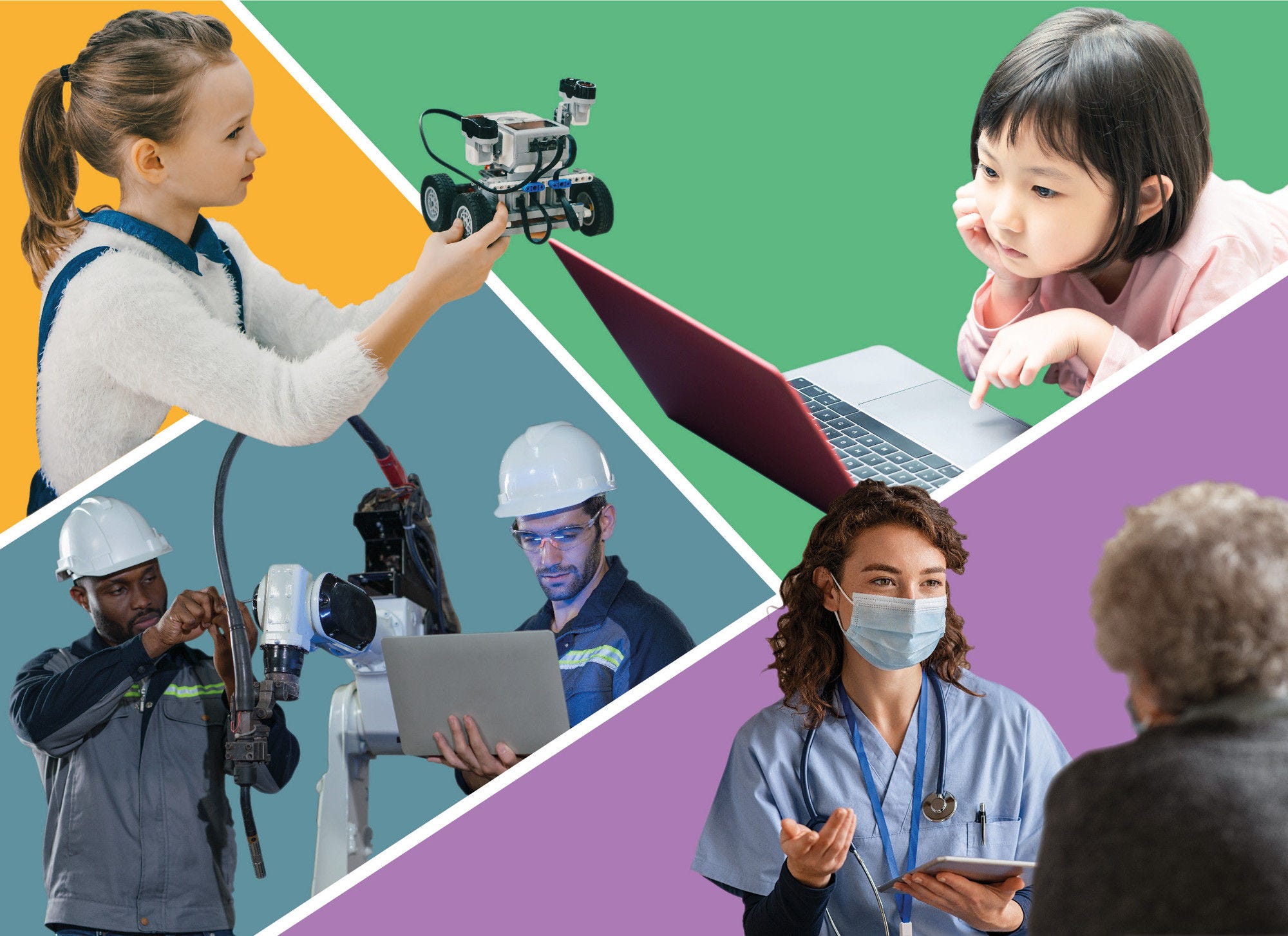Understanding how AI can affect the economy and society – and the education system that prepares students for both – requires an understanding of the capabilities of this technology and their development trajectory. Moreover, AI capabilities need to be compared to human skills to understand where AI can replace humans and where it can complement them. This knowledge base will help predict which tasks AI may automate and, consequently, how AI may shift the demand for skills. Policy makers can use this information to reshape education systems in accordance with future skills needs and to develop tailored labour-market policies.
Artificial intelligence and education and skills
As AI rapidly advances, it is crucial to understand how education will be affected. Important questions to consider include: How can AI be compared to humans? How do AI systems perform tasks from various capability domains such as language, reasoning, sensorimotor or social interaction domains? What are the implications for education and training?

Key messages
As AI rapidly advances, it's becoming evident that it is starting to outpace humans in critical areas such as reading, mathematics and scientific reasoning. This prompts us to reconsider our educational approach. We must determine which skills to prioritise, which to phase out, and where to place greater emphasis in an AI-influenced world. We need to anticipate how learning methods and teaching practices will evolve. At the same time, more profound questions about the overall goals of education are emerging as the cognitive, physical and social capabilities of AI continue to rise.
Countries should encourage collaborative research on effective and equitable use of generative AI in the teaching and learning process to inform forward-looking guidance and dedicated training programmes. Monitoring impact and sharing (international) best practices across researchers, developers, and education stakeholders will help cast light on the multiple benefits of generative AI, as well as on its limitations, allowing innovation and improvements while mitigating pitfalls.
Context
How do GPT and student performance in PISA compare?
The performance of GPT – the AI system behind OpenAI Chatbot ChatGPT – on reading and science is at a higher level than students. GPT-3.5 (released in November 2022) can solve 73% of the reading test questions and 66% of the science questions, while GPT-4 (a more powerful version released in March 2023) scores at 85% and 84%, respectively. In contrast, GPT-3.5 and GPT-4 mathematical capability proved to be still below that of students. Moreover, GPT-4, released only a couple of months after its predecessor, performs at a substantially higher level for each capability .
GPT and student performance on PISA core domain

Evolution of a written task: exploring human-AI synergies
With AI’s rapid growth, tasks humans perform today are likely to change in the future. In consequence, exploring the way humans use, rely on or collaborate with AIs is necessary to adjust the way we should rethink education systems in light of AI capabilities. The recent advent of ChatGPT gives us a concrete example on how written tasks can evolve with AI and its increasing capabilities.

Related publications
-
 14 August 2024
14 August 2024
Programmes and projects
-
Artificial Intelligence (AI) and robotics are becoming increasingly sophisticated at replicating human skills. The evolution of these technologies could fundamentally transform work over coming decades and deeply affect education’s current role in providing skills and preparing learners for future work.Learn more
-
Data and digital technologies are among the most powerful drivers of innovation in education, offering a broad range of opportunities for system and school management, as well as for teaching and learning. But they also create new policy issues as countries face challenges to reap the benefits of digitalisation in education while minimising its risks.Learn more
-
The OECD Career Readiness project is designed to provide new advice to governments, schools, employers and other stakeholders on how to best prepare young people to compete in an ever-changing labour market.Learn more
-
The Centre for Educational Research and Innovation (CERI) provides and promotes international comparative research, innovation and key indicators, explores forward-looking and innovative approaches to education and learning, and facilitates bridges between educational research, innovation and policy development.Learn more
-
The Education Policy Outlook is an analytical observatory that monitors the evolution of policy priorities and policy developments from early childhood education to adult education, mainly among OECD education systems, to provide a comparative understanding of how policies are evolving, and how they can be best implemented or improved over time.Learn more
-
The OECD’s programme on education and skills policy support policymakers in their efforts to achieve high-quality lifelong learning, which in turn contributes to personal development, sustainable economic growth, and social cohesion.Learn more
-
Education for Inclusive Societies Project is designed to respond to the increasing diversity that characterises education systems, and seeks to help governments and relevant stakeholders achieve more equitable and inclusive education systems as a pillar to create more inclusive societies.Learn more
-
OECD Future of Education and Skills 2030 aims to build a common understanding of the knowledge, skills, attitudes and values students need in the 21st century.Learn more
-
The Higher Education Policy Programme carries out analysis on a wide range of higher education systems and policiesLearn more
-
The Research, Development and Innovation (RDI) programme established by the PISA Governing Board in 2018 explores how different areas of the assessment programme (e.g. test design, scoring methodologies) can be improved.Learn more
-
Since 2013, the OECD has gathered evidence on how school resource policies work in different contexts. The focus is now on digital resources to enable countries to learn from each other in the digital transformation of their education.Learn more
-
Large-scale assessments of social and emotional skills mainly use students’ self-assessments, which have some flaws in terms of comparability and, to some extend, validity and interpretability. Smaller studies are trialling more direct assessments of these skills. Work is needed to translate the innovations made in these trials and test them on larger, international scales. » A better understanding of social and emotional skills will lead to better inclusion of these skills in education.Learn more
-
Meeting the challenges of the 21st Century means that schools must be empowered to play a more central and active role in leading improvements in education. To support this, Schools+ will bring together major education networks to put schools at the centre of education design.Learn more
-
Preparing for the future means taking a careful look at how the world is changing. Reflecting on alternative futures helps anticipate and strategically plan for potential shocks and surprises.Learn more





